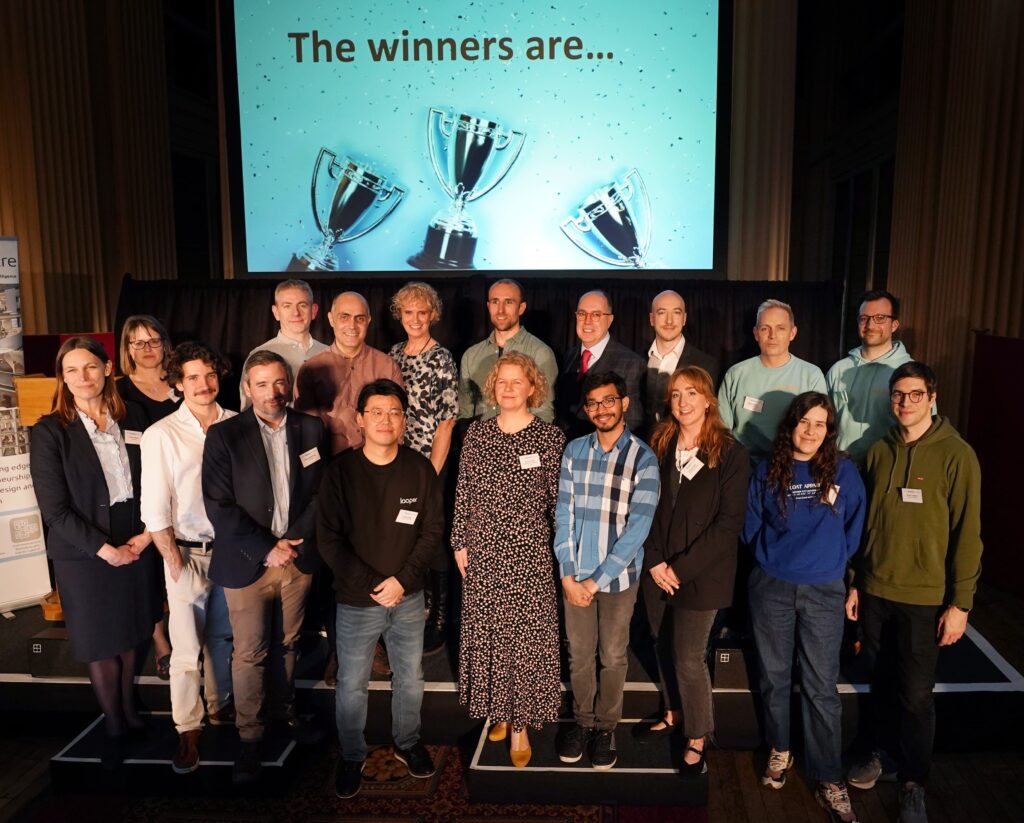Innovative businesses with ‘high growth potential’ are being urged to apply to join an AI accelerator programme run by the University of Edinburgh.
Tech-driven scale-up companies are being encouraged to join the ‘world-leading’ programme at the university’s Bayes Centre – to maximise their commercial potential.
The programme supports emerging businesses whose proposition is built on AI – and successful applicants will be exposed to mentoring, growth and potential investors.
Along with some generous financial support, newly accepted cohort companies will also be given the opportunity to scale their business through workshops covering a range of commercialisation issues from product pricing to leadership.
The deadline for applications is May 19 but there will be an information session hosted online on April 23 and an in-person follow-up event on May 3.
A cohort of up to 16 companies, all of which place a strong focus on ‘AI for good’ to deliver societal benefits in key areas including health and wellbeing, social care, and the climate challenge will then be selected with the programme running from September until March 2025.
Professor Ruth King, director of the University of Edinburgh’s Bayes Centre, said: “We’re delighted to be marking the fifth year of our AI Accelerator programme which supports AI-driven businesses to further commercialise their proposition and become world leaders in their field. We are proud to have supported over 80 companies in their growth journey by offering mentoring and guidance while opening access to new networks to help them secure funding and investment.
“AI has become increasingly prominent as a disruptive technology impacting all aspects of our lives. The University of Edinburgh has been recognised as a world leader in AI research for more than 60 years. We understand the importance of utilising this technology in an ethical and trustworthy manner to deliver social and economic benefits. We now look forward to receiving applications from innovative and ambitious scaleups from within Scotland and across the globe which use AI to tackle key societal challenges.”
The AI Accelerator has supported a wide range of world-leading companies to develop from start-ups to globally focused businesses. These include climate monitoring solution provider, Space Intelligence; Inicio.AI, a technology-driven start-up which makes debt management processes more efficient and accessible for businesses.; and Edinburgh-based cancer research business Carcinotech, which raised over £4m in January to further develop its 3D-printed micro-tumour technology.
Since the inception of the AI Accelerator in 2018, these and other participant companies have gone on to secure over £67m through a combination of external investment and grant funding awards.
The University of Edinburgh is in the UK Top 5 for Data Science in the current QS World University Rankings and is also the top-rated UK institution for informatics research, according to the 2021 Research Excellence Framework rankings. As home to the largest centres for computing science and informatics in Europe, the university’s academic expertise and links into the Data-Driven Innovation hubs provides further value for the companies participating in the AI Accelerator.
The 2024 programme will be once again delivered both digitally and in-person by University of Edinburgh’s world-leading Innovation Hub for Data Science and Artificial Intelligence, the Bayes Centre, and in partnership with Edinburgh Innovations, the University of Edinburgh’s commercialisation service. The programme is delivered on behalf of all the university’s Data-Driven Innovation Hubs.
